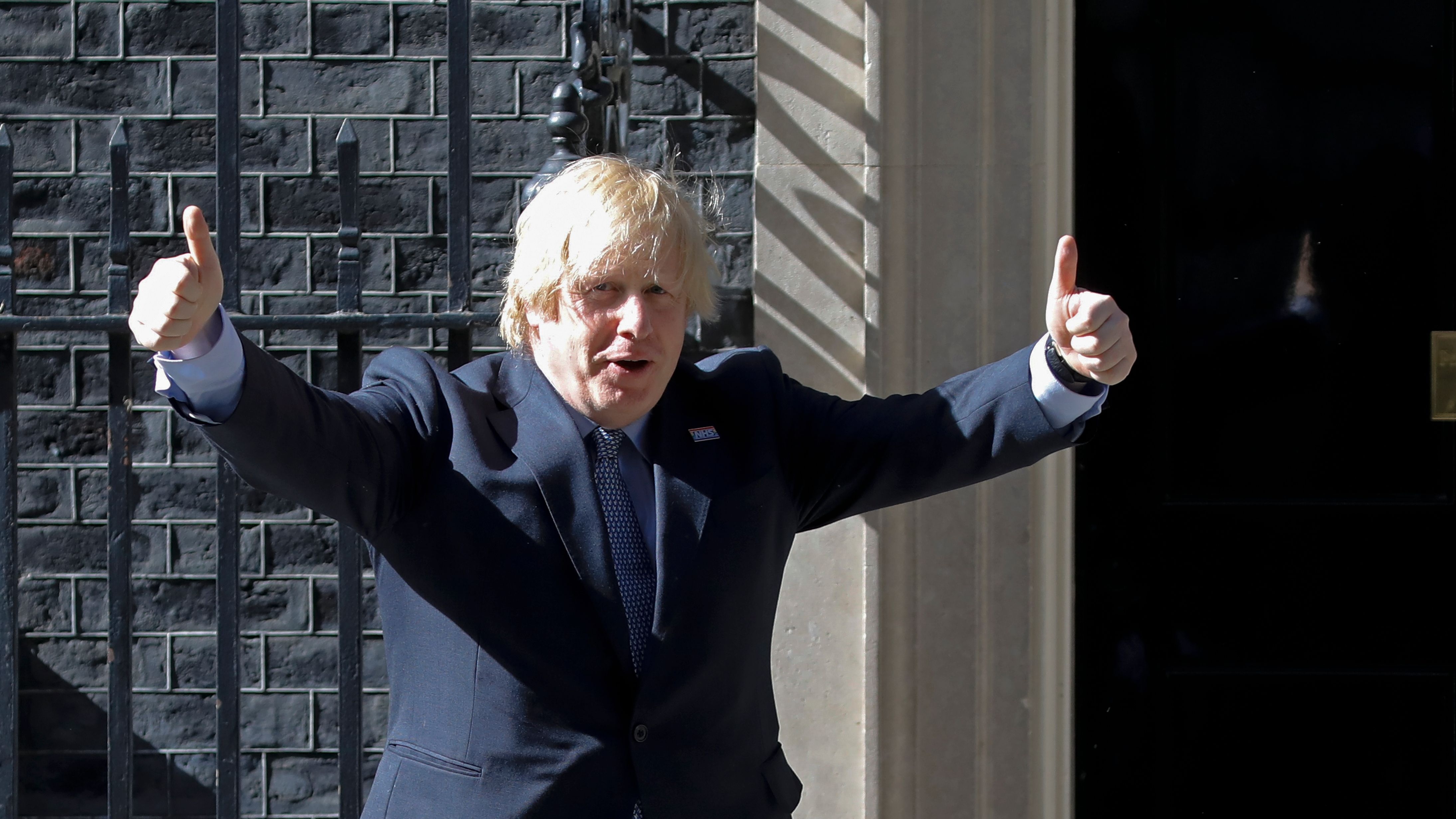‘Unlike Starmer, Johnson would never shed a public tear’
Your digest of analysis and commentary from the British and international press

- 1. Boris Johnson is the leader Dianafication forgot
- 2. The Belarus hijacking reveals the West’s complacency
- 3. What’s irretrievable after a pandemic year
- 4. Max Mosley: the man who took on the News Of The World and won
- 5. Muslim women didn’t need a review to prove Boris Johnson’s comments about the burqa were offensive
A free daily email with the biggest news stories of the day – and the best features from TheWeek.com
You are now subscribed
Your newsletter sign-up was successful
1. Boris Johnson is the leader Dianafication forgot
Hugo Rifkind in The Times
on the PM’s stiff upper lip
“The only way I can imagine Boris Johnson shedding a tear in public is if the wrong bit of him got caught in a zipwire harness,” writes Hugo Rifkind in The Times. Unlike opposition leader Keir Starmer, who has taken part in an emotional tell-all interview with Piers Morgan, Johnson would never believe “for a single moment” that the British public wanted to “see the real him”, writes Rifkind. “Would he let them, even if they did?” Whatever “dark and weepy thoughts lurk somewhere inside our current prime minister” they are fiercely guarded. “And you know what? Last poll I saw, he was 18 points ahead,” he writes. On “planet Boris” the last quarter century “of emoting, of sharing, of confessing” never happened.
The Week
Escape your echo chamber. Get the facts behind the news, plus analysis from multiple perspectives.

Sign up for The Week's Free Newsletters
From our morning news briefing to a weekly Good News Newsletter, get the best of The Week delivered directly to your inbox.
From our morning news briefing to a weekly Good News Newsletter, get the best of The Week delivered directly to your inbox.
2. The Belarus hijacking reveals the West’s complacency
Jade McGlynn in The Spectator
on hard truths
The Belarusian government’s “obscene disregard for international law and human rights” marks a regime “whose domestic turpitude has become an international problem”, writes Jade McGlynn in The Spectator. “Rather than re-embark upon the well-trodden ‘all roads lead to Putin’ narrative”, the West “might be better advised to consider our own role in emboldening [Belarus President] Lukashenko”, she writes. “We have failed to inflict a cost on the ruling elite of an almost three-decade-old dictatorship” while presiding over sanctions that more often than not, “enable the villains while ignoring the heroes”.
A free daily email with the biggest news stories of the day – and the best features from TheWeek.com
3. What’s irretrievable after a pandemic year
Salman Rushdie in The Washington Post
on incalculable losses
“It is a part of our tragedy that in this time of crisis we have been cursed, in many countries, including all three of those I have most cared about in my life, with leaders of astonishing cynicism and bad faith,” writes Salman Rushdie in The Washington Post. In India, Modi’s government blamed Muslims; in the UK, Johnson handled the crisis with “stunning” incompetence, while the Trump administration obscured its “lamentable” response in a “blizzard of lies”. “To repair the damage done by these people in these times will not be easy”, Rushdie writes, and “may take a generation or more”. As we stare across the chasms of “deepening rifts” in our society “we have begun to hate the people on the other side. That hatred has been fostered by cynics and it bubbles over in different ways almost every day.”
4. Max Mosley: the man who took on the News Of The World and won
Gemma Peplow on Sky News
on a tabloid scourge
“‘Enemy of the free press’ was the caustic description of former Formula 1 boss Max Mosley in The Sun newspaper’s obituary report following his death from cancer,” writes Gemma Peplow on Sky News. And while “many hail” Mosley for his privacy campaigning, giving evidence to MPs during the Leveson inquiry, “to the tabloid press he certainly was an enemy”, she writes. It was Mosley’s “refusal to bow to the power of Fleet Street” that ended some of the “questionable methods” employed by unscrupulous journalists to get their scoops, “and his campaign against the press is seemingly one that has not been forgiven”.
5. Muslim women didn’t need a review to prove Boris Johnson’s comments about the burqa were offensive
Rabina Khan in The Independent
on Islamophobia
“Muslim women didn’t need a review into Islamophobia to tell the Conservative party that Boris Johnson’s comments about Muslim women wearing the burqa were insensitive and had profound effects on their lives,” writes Rabina Khan in The Independent. While Johnson has apologised for “any offence caused” and said he would not use the same language today, “it will be interesting to see if he reverts to using the same type of language” should he one day take up his old day job as a journalist. Muslim women have “never mocked the Queen for wearing a headscarf, nor targeted teenagers for wearing hoodies or showing their underpants above their jeans”, Khan writes. Yet the targeting of Muslim women by Johnson and his ilk “has only served to perpetuate stereotypes associated with Islam and created further division and suspicion”.